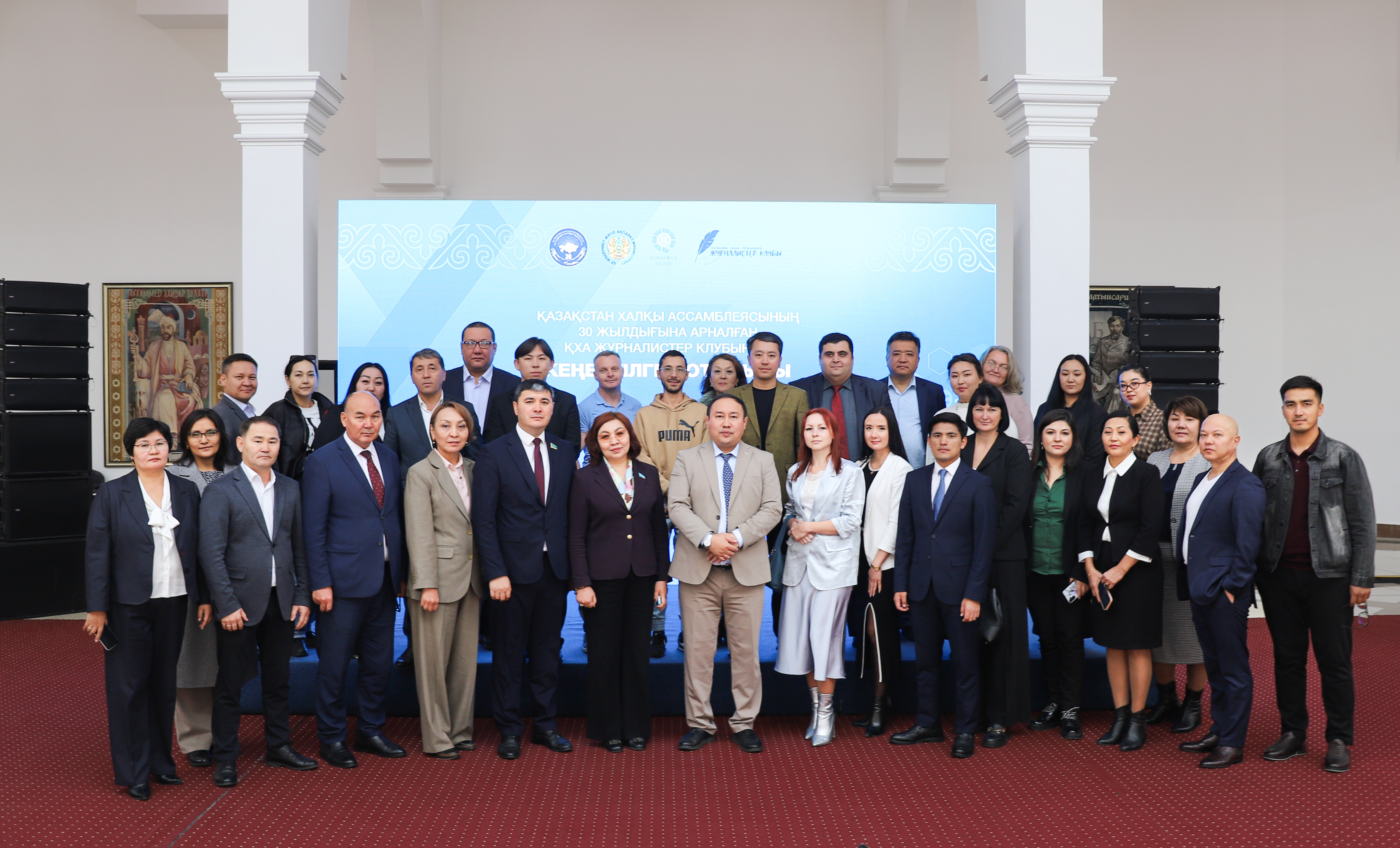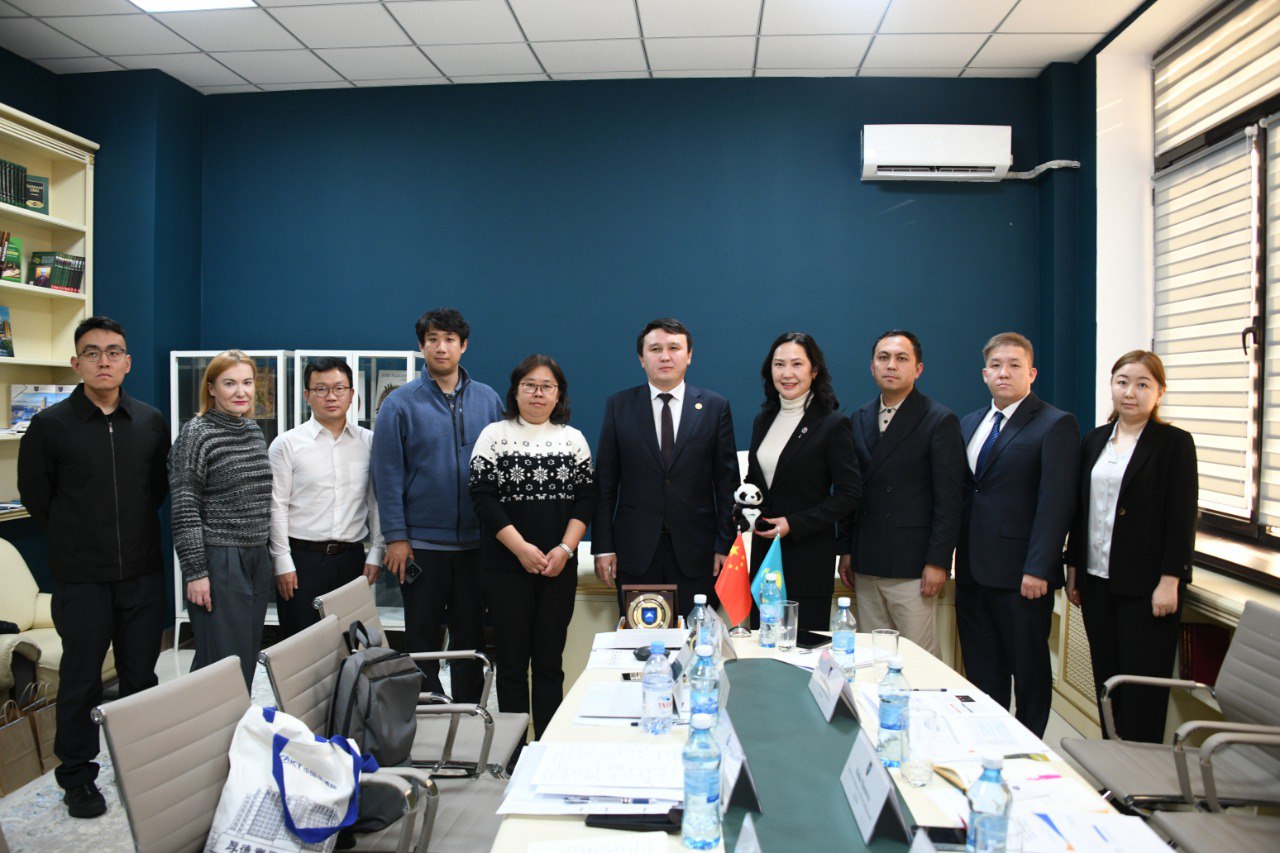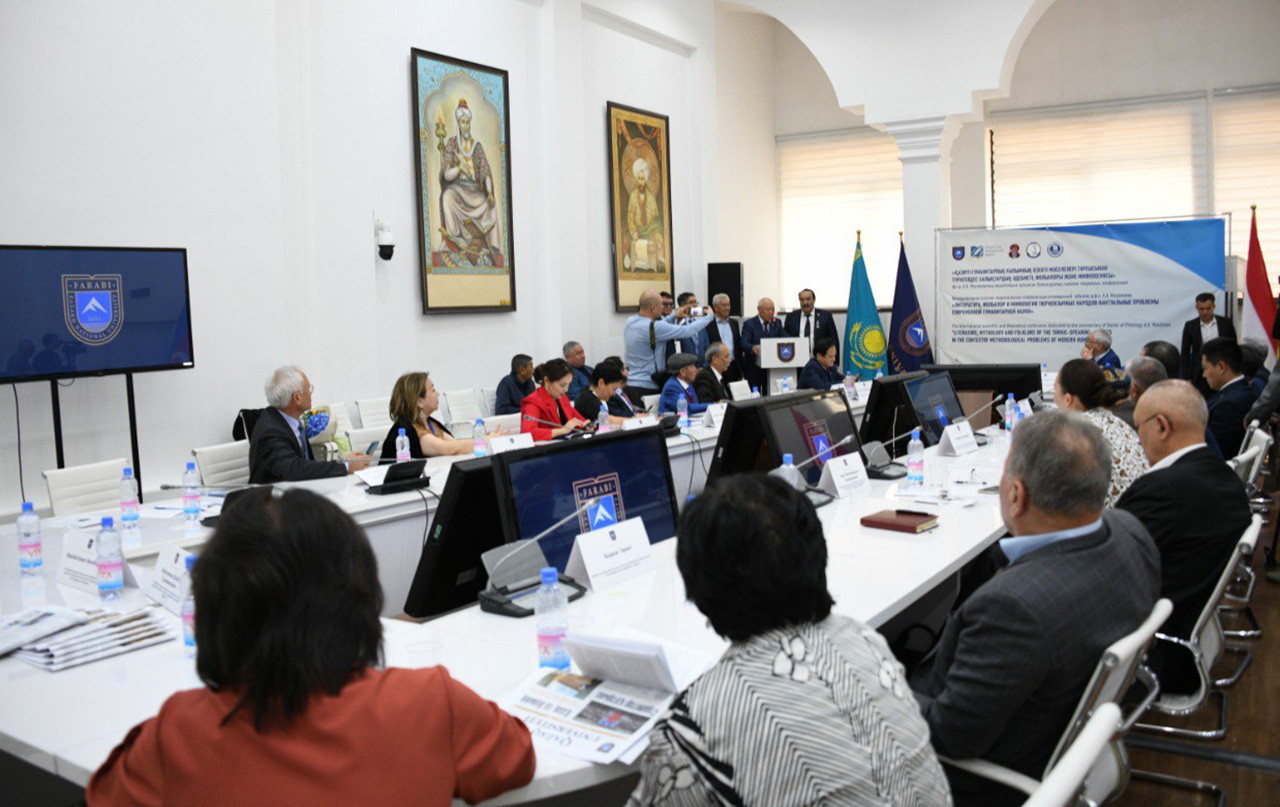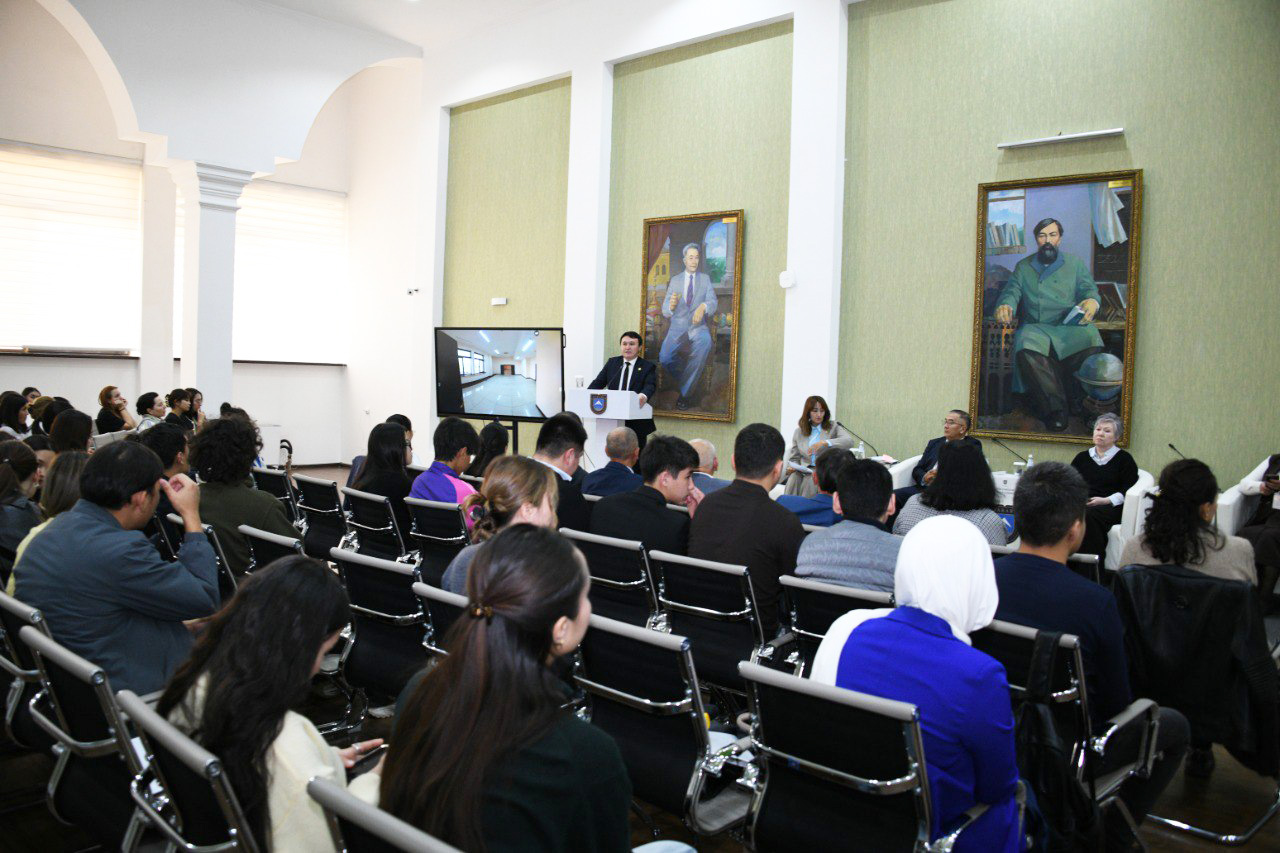Journalists Club of the Assembly of the People of Kazakhstan visiting KazNU

An expanded meeting of the Journalist's Club of the Assembly of People of Kazakhstan, dedicated to the 30th anniversary of this unique public institution, was held at the al-Farabi Kazakh National University. The Faculty of Journalism has become a platform for a rich training block for club members, media representatives of the country's ethnic groups, press services, media experts, journalists and bloggers, and APK members.
Bibigul Zheksenbai, a member of the Senate of the Parliament, Chairman of the Club of Editors-in-Chief, noted the importance of sharing experiences and the value of the influence of the academic environment for the effectiveness of the media of ethnic and cultural associations of Kazakhstan. Dean of the Faculty of Journalism Kanat Auesbaiuly welcomed all the guests and noted that dialogue, constantly supported by ethnic journalism, always remains at the center of coverage of traditional and new media. The deputy of the Senate of the Parliament, Chairman of the Club of Journalists of the Assembly of People of Kazakhstan Alisher Satvaldiev also stressed the uniqueness of the mission of the journalistic community in strengthening social harmony and promoting the ideas of unity. A memorandum of cooperation was signed between the APK Journalists Club and the Editors-in-Chief Club.
During the trainings, the participants exchanged experiences, gained practical skills in applying new technologies and raised issues of relevance of publications in their native languages. Experts, including famous media manager Imanbai Zhubai, teacher Alexander Rozhkov and others, demonstrated how to correctly use ethnopolitical terminology, revealed the features of media consumption, the formation of a culture of consent, and methods of applying anti-crisis PR. All participants received certificates.
The guests visited the university museum, the artificial intelligence room of the Journalism Faculty and the Barmankulov television studio with interest.
As noted by Oryntay Oshanova, Head of the UNESCO Chair in Journalism and Communication at the Faculty of Journalism, the Master's degree program "Ethnojournalism" has been conducted for several years. Scientific projects are also being implemented to evaluate the interaction of the country's ethnic groups through media journalism, improve the quality of materials and foster tolerance.
The professionalism of the media staff consists in civic responsibility, media literacy in the implementation of the principle of "unity in diversity", which is also supported by many events at the university.


